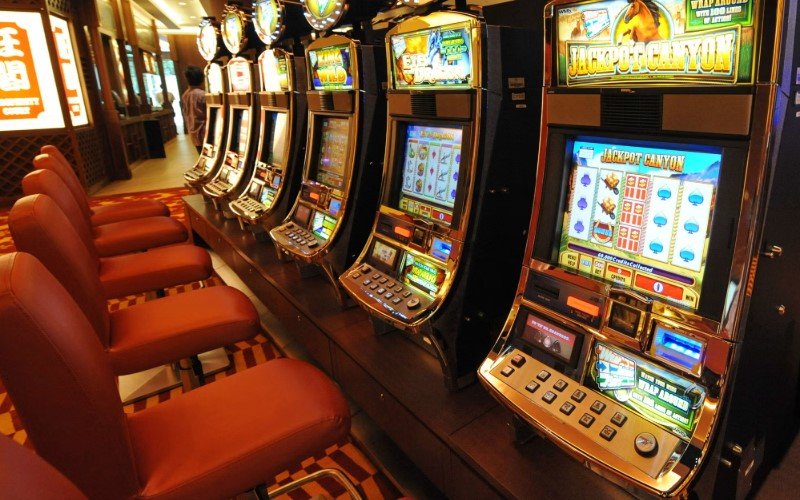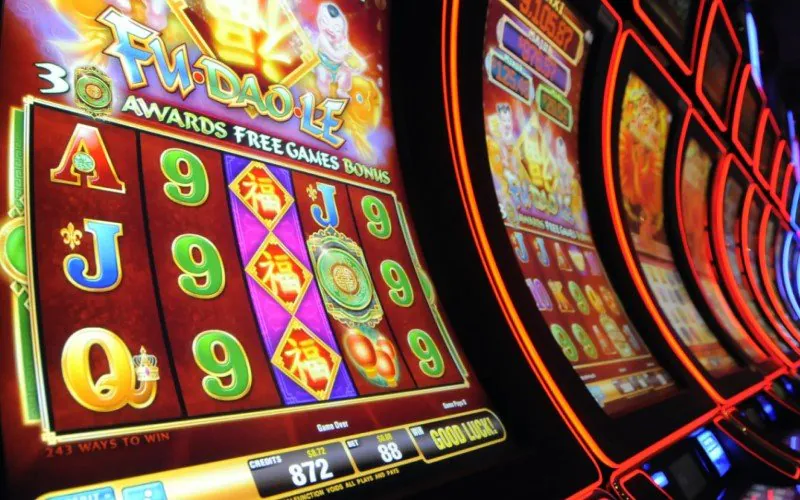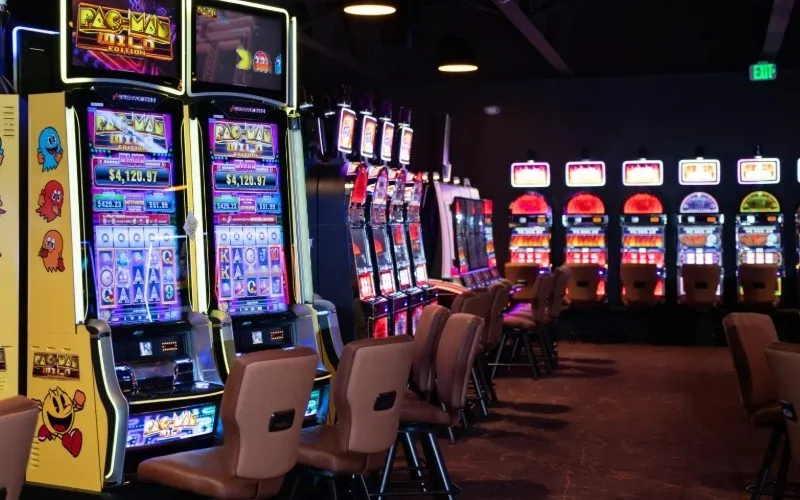Science
Risk vs. Reward: The Psychology of Slot Machine Design

What is tremendously simple to learn and play is exceedingly difficult to predict and calculate. Slots have long been the favourite games of players at casinos, both online and land-based. When going to a physical casino or opening your online casino, you will notice that the majority of the games library is slots.
These games are easy to learn and pretty self-intuitive. Even a complete beginner can suss out how to play slots if given a good few rounds to see how they work. And there are so many different types of slots with special features and mechanics. But behind the machine lies a very intricate algorithm and they are more difficult to plan strategies on. The main reason why is that the slot pay structure is so unique, and no title has exactly the same system as another. Here, we will analyse how these games are designed, and how they can impact a player’s psyche.
The Unique Pay Structure of Slot Machines
That is not to say that every single slot machine has a different paytable or structure, as various templates can be used when developers design slots. For instance, they can design 10 symbols, 10, J, Q, K, A, and 5 other symbols that relate to the game’s theme. Then, if they use a fixed payline format, they can determine how much each symbol pays, with full and partial paylines. For instance, the J through A may pay out little returns for a 3-symbol partial payline, and offer even money or returns of 2x for a full payline. The character symbols can then be set to offer bigger returns.
But there are no ways to predict accurately your chances of landing each payline. After 10 spins, you may form 2 partial character symbol paylines, 3 partial or full lower symbol (10-A) paylines and get nothing on 5 rounds. But you won’t know if you have increased your bankroll or not without checking the display. Just compare that with something like blackjack, where if you win 6 out of 10 hands, usually you are at a profit. Or baccarat, where 5 from 10 will mean you are slightly below your original bankroll.
And then, we haven’t even mentioned any kinds of bonus rounds or respins, which could suddenly see you winning a great lump sum all in one round. The complex paytables and structure of the game give slots more result variance than any other casino game.

The Feeling of Winning in Slots
If you land a partial payline on a lower ranking symbol, such as 10, you will still get a celebratory chime and a display that says “You Won X”. Though in those cases, the money may not even cover your stake on that spin, meaning you are at a loss. It is easy to feel like you are ahead, especially if you have consistently picked up smaller wins, but in reality, you may be eating through your bankroll. Sure, all you need is to trigger a bonus round or land a full payline of high ranking character symbols, but no one can specifically tell you the exact odds of landing one of those paylines.
Slots developers work to emphasize the feeling of wins, even when they are pyrrhic victories. It gives us a little kick and makes us want to keep going, in the off chance that the next spin may produce something significant. Slots are also a lot faster than any other casino game. A round of slots takes around 4 seconds without autoplay. Realistically, you can play a good 200 to 300 rounds in half an hour, far more than you would playing blackjack or roulette. In those rounds, you will surely hit a few significant wins, which will keep you going through the losses.
Psychological Effects of Playing Slots
The variance can play tricks on gamers, especially uninitiated newcomers. When we gamble, we are testing the odds to see if we get lucky. The risk of losing, the uncertainty of what may happen, and the anticipation is extremely stimulating. It makes your brain release dopamine, a little shot of pleasure and motivation. In other games, where you don’t play 10 rounds per minute, the feeling of losing or winning is accentuated. A loss creates remorse or builds your stress levels. Whereas the win will give you a winner’s high and fuel your desire to keep going.
But as slots are generally played at a greater volume of rounds, the regret felt at a loss is not as prominent. You always have the next round to balance it out. A win will feel good, but even better if you land a rare payline that unlocks returns of 5x or greater. Then, there are partial wins. These are the wins that may just return an amount smaller than your stake, or close to even money. These types of wins can also stimulate players and create a sense of pleasure. Even if they have not really helped us.
Another phenomenon is near misses. There are so many ways to win at slots, and even more outcomes that produce “near wins”. You don’t win in these cases, but land a sequence of symbols that is just 1 or 2 steps away from producing something valuable. Players can get stimulated and get a shot of dopamine if they encounter a near miss.

Features That Create Greater Variance
We have assessed a very standard model for a slot. That is, with 10 symbols, fixed paylines, and the optional bonus round or respins game. There are bucketloads of extras and features that games can include to mix up each outcome.
Special Slots Mechanics
The original slot games used 3 reels, a number of character symbols, and fixed paylines. Since then, designers have come up with greater grids, more complex payline structures, and games that completely break the mould where paylines are concerned.
For instance, a lot of slots use Ways Pays mechanics, in which you don’t have paylines. Instead, by landing a sequence of matching symbols across the reels, across any columns, you can win. Another popular mechanic is cluster pays. These generally have huge grids, and pay if you have matching symbols in adjacent squares. Then, they can introduce features such as cascading reels. This is when matching symbols in a winning sequence fall off the reels. They are then replaced with other symbols, with the potential to make more winning combinations.
Megaways is another dynamic mechanic that has found great popularity. The size of the slots changes with each spin, to alter the number of reels on the grid. This breaks the payline structure and greatly expands the different possible winning outcomes.
Special Symbols
Most games have a few extra symbols, in addition to the 10, J, Q, K and A and the character symbols. Wilds are special symbols that can substitute for any other symbol on the board. They can form winning paylines or sequences.
Scatters are generally symbols that must be landed to trigger a bonus round. Most slots require you to land 3 or more symbols to trigger the bonus round. In some games, landing more may extend the bonus round. But scatters may also award players instant cash prizes, or be collected across multiple rounds to trigger other types of prizes.
Bonus Round Features
Usually, the bonus round will use similar, if not the same symbols, as the base game. When you trigger the bonus round, you get a free number of spins. The money collected across the rounds are given to you at the end of the bonus round, usually bringing a big payload.
Bonus rounds can utilise features such as multipliers, expanding symbols, sticky symbols, and even have scatters to extend the bonus round.
Then, there are bonus rounds that completely deviate from the plot. They may not even be slot games, but picking games in which you need to pick from a number of items to determine how much you will win.
Slot Jackpots and Mega Payouts
Jackpots are another aspect that creates tremendous variance in your results. The jackpots can vary depending on the slot. Some slots use fixed, multi-tier jackpots. Sometimes, you can only unlock the jackpot if you trigger the bonus round and meet specific criteria. Otherwise, the jackpots can be unlocked in the base game, but they have a strict set of conditions. In multi-tier jackpots, usually, there are 4 jackpots of different sizes.
On the other end of the spectrum, progressives offer jackpots that are constantly increasing. Every time someone spins the reels on the game, a portion of their stake is fed into the jackpot. Therefore, the jackpot keeps growing until one lucky player wins it. After a win, the jackpot is reset to the initial value, and can then start growing again. The allure of winning a jackpot and anticipation can compel gamers to keep playing specific slots.

How RTP or Volatility Define a Slot’s Payouts
Slots are really one of the most exhilarating casino games out there. You never know when you will land a 10x payline, or trigger a bonus round that will bring you unmeasured riches.
On the other hand though, you could play for an hour without hitting any significant wins, and slowly burn through your bankroll. Of course, there are values such as RTP and High/Low Volatility that give you a rough idea of how the game pays out.
RTP is a theoretical value, calculated over hundreds of thousands of game simulations. They tell you more or less how much the game pays out over a theoretical period of time. Volatility tells you whether a game pays out regularly but in smaller amounts, or rarely, but with bigger payouts.
Balancing Risk and Reward
But ultimately, these are just approximations that cannot be taken for fact. There is no way of knowing whether you will make a big profit or go bust playing slots.
To avoid the latter scenario, you have to create a solid bankroll. You need to be able to accommodate a good, long gaming session. It is the only way to test the variance and see whether luck will spill your way. Should you find yourself ahead, then you can decide to quit early and leave with a profit. Otherwise, you may end up playing until you are back to square one, and then go into the red.











